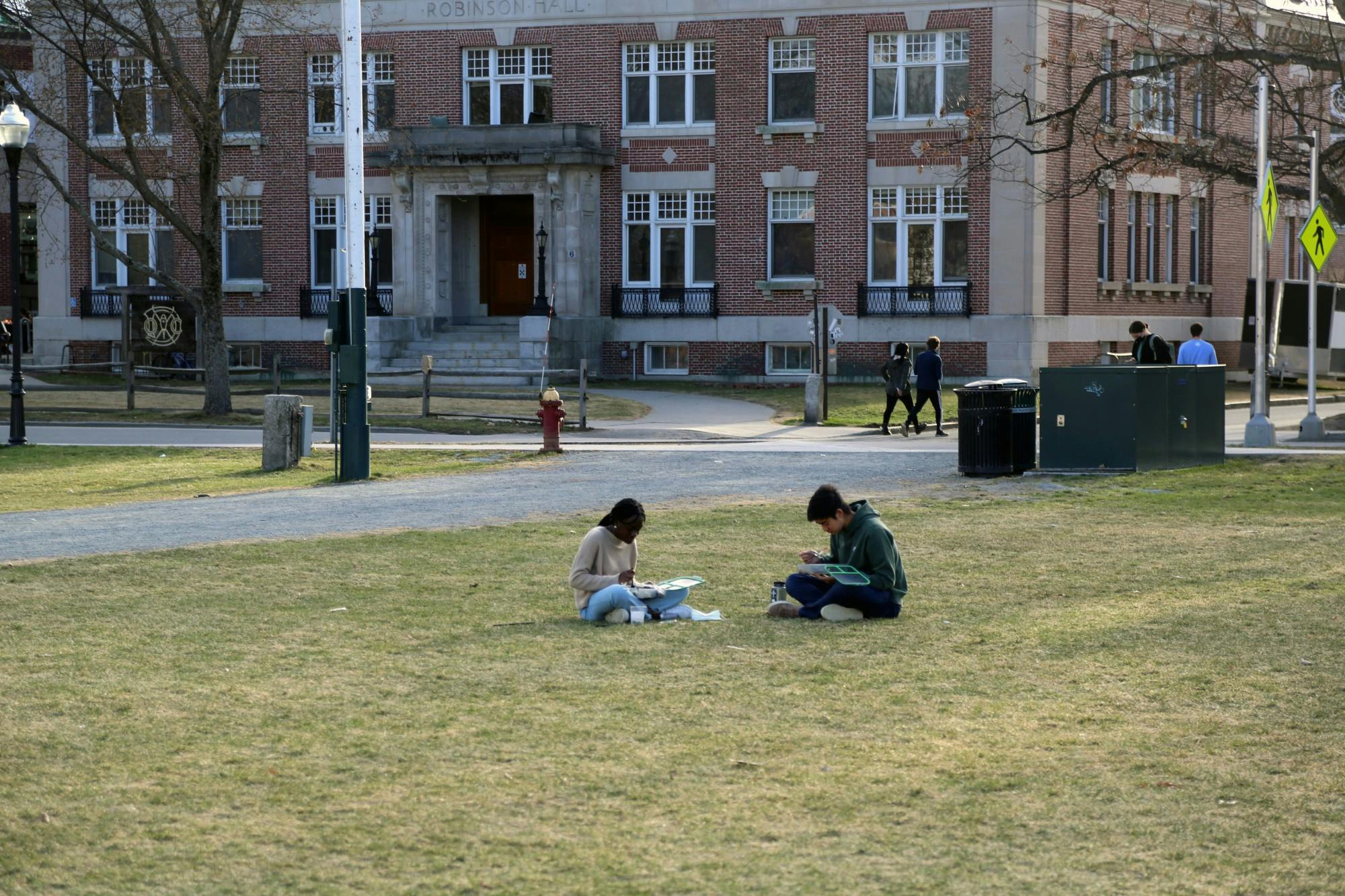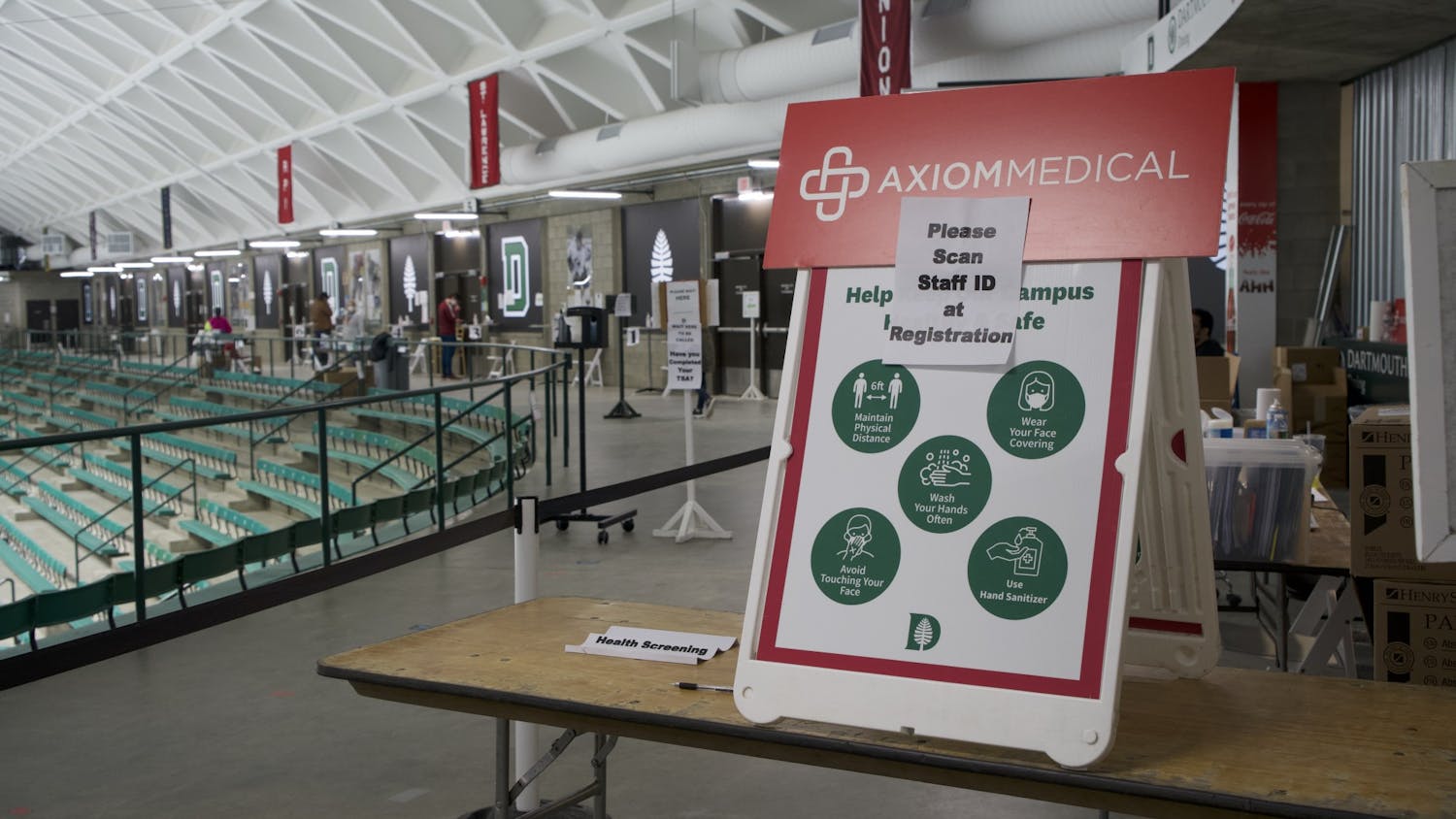Recent changes to Dartmouth’s COVID-19 socialization protocols have prompted backlash from students who still find the College’s approach too restrictive, particularly as it pertains to fully vaccinated individuals.
On April 6, COVID-19 Task Force co-chairs Lisa Adams and Josh Keniston wrote in an email to the Dartmouth community that no more than nine fully vaccinated students may now gather in private, off-campus residences without maintaining six feet of distance or wearing face coverings.
Since the community is not yet fully vaccinated, the new policy does not apply to public locations off-campus or any locations on campus, Adams and Keniston wrote.
Although the Centers for Disease Control and Prevention’s website states that fully vaccinated people can safely “visit with other fully vaccinated people indoors without wearing masks or physical distancing,” Keniston said Dartmouth chose to “draw a slightly different line for on-campus spaces.”
Keniston noted the challenges of controlling who can “come and go” within on-campus spaces, given the common lounges and bathrooms shared by both vaccinated and unvaccinated students.
“There's just a real mixing of people,” Keniston said. “And until we get to a higher level of vaccination among our [student] body, we’re going to be a little bit more cautious and conservative.”
College Health Service director Mark Reed also said it would be challenging for the College to ensure groups of students socializing in dorms are entirely vaccinated.
Current CDC guidance states that fully vaccinated people can now safely “visit inside a home or private setting without a mask with one household of unvaccinated people who are not at risk for severe illness.”
While the CDC guidelines now allow vaccinated and unvaccinated individuals to gather, Adams and Keniston wrote that, because of the difficulty of defining a household in the student population, Dartmouth is not adopting the measure.
Reed described Dartmouth’s congregate living situation as being “closer to a cruise ship than it is to a regular, single-family household,” elevating the risk of COVID-19 transmission and making it difficult to adopt the CDC’s guidance.
“To think that there is just one other family that you’re going to be interacting with doesn't hold,” Reed said. “Dartmouth, for the most part, is very inclusive. People will be coming in and out of all sorts of different social groups.”
Reed said that he broached the possibility at the beginning of the year of allowing students to form five-person “pods” but opted instead for a model that allows students to interact with anyone in the community.
Keniston noted the challenges of balancing physical health with the mental health and wellness of the community.
“… We look at the community as a whole,” he said. “I do think that we are balancing [the physical and mental health of the community] and continuing to look for opportunities to further improve the ability to have social interactions … that are so important to the mental health piece.”
Leah Zamansky ’24 said that she thinks the College has fallen short of protecting students’ mental health during the pandemic, citing inadequate mental health resources and overly stringent gathering policies. Zamansky added that she believes the College should reassess its COVID-19 protocols, specifically advocating for a revised set of rules regarding dorm room gatherings.
Currently, both vaccinated and unvaccinated students may host one other guest in their dorm — provided that all health guidelines, such as physical distancing and mask wearing, are followed.
Reed said that, while some rooms can allow for more than two people to socially distance in the space, most rooms cannot, and the policy seeks to reduce the “numerous episodes” of mass gatherings in dorms that were not large enough to socially distance.
“There have been a lot of students in rooms … who may be challenged math-wise, because they claim six feet, and that's not really happening,” Reed said.
Lexy Piton ’24 said she would like to see the College make encouraging social interactions among students a priority.
“I feel like there [are] a lot of interactions missing between people because of all the regulations, Piton said. “… and every time you hang out with somebody, it is like, ‘Are we going to get in trouble?’ It's not the kind of anxiety a student needs.”
David Millman ’23, who is living off campus this term, acknowledged the logistical hurdles of the College abiding by the CDC’s policies but said he believed Dartmouth’s decision not to adopt the agency’s recently updated guidelines was rooted in a mistrust of students.
“By not even examining this possibility [of allowing vaccinated students to gather on campus], it just shows a lack of trust from the College to the student body,” Millman said. “I think it is a difficult issue, but it’s worth investigating every measure that can improve the student experience during COVID-19.”




